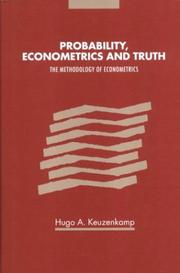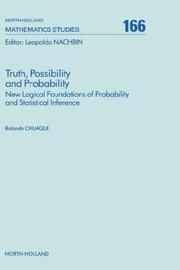| Listing 1 - 10 of 70 | << page >> |
Sort by
|
Periodical
ISSN: 23278455 Year: 1994 Publisher: [Las Vegas, Nev.] : [UNLV International Gaming Institute] : [William F. Harrah College of Hotel Administration],
Abstract | Keywords | Export | Availability | Bookmark
 Loading...
Loading...Choose an application
- Reference Manager
- EndNote
- RefWorks (Direct export to RefWorks)
Gambling --- 83.67 industry --- Law and legislation --- Gambling. --- Law and legislation. --- Betting --- Chance, Games of --- Games of chance --- Gaming (Gambling) --- Games --- Casinos --- Wagers

ISBN: 9004165592 9786611937379 1281937371 9047423550 9789047423553 9789004165595 9781281937377 6611937374 Year: 2008 Publisher: Leiden ;Boston Martinus Nijhoff Publishers
Abstract | Keywords | Export | Availability | Bookmark
 Loading...
Loading...Choose an application
- Reference Manager
- EndNote
- RefWorks (Direct export to RefWorks)
The dynamic discussions which took place at the Colloquium on the Economic Aspects of Gambling Regulation: EU and US Perspectives, hosted by Tilburg University, are reflected in this book. It brings together a wide range of perspectives from the contemporary debate surrounding the regulation of gambling from within the context both of the EU and the USA. Not only does the book encompass both ends of the spectrum of the current discussion; it also brings together the perspectives of academics, lawyers and operators. Debates surrounding the regulation of gambling have been increasing in terms of frequency and ferocity, at the national, European and international levels. Within the Member States of the European Union there has been considerable debate as to the appropriate method of regulating gambling, in particular with a view to securing revenue streams for good causes. Concurrently, infringement proceedings of the European Commission and the case-law of the European Court of Justice have the potential to disrupt chosen regulatory approaches and thus long established revenue flows. This is but one of the economic aspects to the regulation of gambling which to date has not been explored within Europe to the extent seen in the United States. Lessons which European jurisdictions can learn from American experiences in this field, and discussions on the state-of-the-art of gambling economics in Europe today, form the basis of this dynamic book.
Gambling --- Law and legislation --- Economic aspects --- Betting --- Chance, Games of --- Games of chance --- Gaming (Gambling) --- Games --- Casinos --- Wagers --- Glücksspiel --- Recht --- Wirtschaft --- Europäische Union --- USA
Book
ISBN: 1281757500 9786611757502 1605570214 9781605570211 Year: 2007 Publisher: [Place of publication not identified] Edward Reed Cook
Abstract | Keywords | Export | Availability | Bookmark
 Loading...
Loading...Choose an application
- Reference Manager
- EndNote
- RefWorks (Direct export to RefWorks)
The world of gambling on sports is a controversial and provocative place. Author Oliver Jones has written a neat book entitled SPORT GAMBLING 101. It is an educational, tell-it-like-it-is work of research. What to do, how and where to do it, and what not to do, are fully described in this user-friendly reference guide. With facts, details, opinions, and anecdotes, its simplicity and honesty make it unique from the competition. This book is written for the novice who wants to learn, the pro who wants to refresh, as well as the addict who needs help and wants to quit. Learn more about the gambling industry and the sportbooks and how they operate. SPORT GAMBLING 101 is a must-read for any gambler, sports fan, or anyone interested (whether one gambles or not). Its chapters include: 1. Why Sports Gamble?, 2. Things You Must Know, 3. How and Where to Sports Gamble, 4. ALL Sports: Football * Basketball * Baseball * Hockey, Nascar * Golf * Boxing * Soccer, 5. General Tips and Strategies, 6. The Cops, The Refs, The Beautiful Women, 7. Be Your Own Bookie, 8. Why Not to Sports Gamble, 9. Terms and Definitions. Oliver Jones grew up playing and watching almost all sports and he witnessed first hand the explosion of TV sports and sport radio as well as the gambling industry. He was inspired to write 'Sport Gambling 101' because, while there is a lot written on the casino games such as Poker or Black Jack, there is very little good writing on sport gambling, in the broader picture. Oliver succeeds in his book in informing the sport gambling public and entertaining the rest of the population. Reading this book will prove the best bet you will ever make!.
Gambling --- Recreation & Sports --- Social Sciences --- Betting --- Chance, Games of --- Games of chance --- Gaming (Gambling) --- Games --- Casinos --- Wagers --- Sports betting --- Handicapping --- Sports handicapping --- Sports trading (Sports betting) --- E-books
Book
ISBN: 9780128002902 0128002905 9780128000427 Year: 2014 Publisher: Oxford : Academic Press,
Abstract | Keywords | Export | Availability | Bookmark
 Loading...
Loading...Choose an application
- Reference Manager
- EndNote
- RefWorks (Direct export to RefWorks)
"In this introductory chapter, the concepts of a field and of a [sigma]-field are introduced, they are illustrated bymeans of examples, and some relevant basic results are derived. Also, the concept of a monotone class is defined and its relationship to certain fields and [sigma]-fields is investigated. Given a collection of measurable spaces, their product space is defined, and some basic properties are established. The concept of a measurable mapping is introduced, and its relation to certain [sigma]-fields is studied. Finally, it is shown that any random variable is the pointwise limit of a sequence of simple random variables"--
Probability theory --- Probabilities --- Computer simulation. --- Probability --- Statistical inference --- Combinations --- Mathematics --- Chance --- Least squares --- Mathematical statistics --- Risk
Book
ISBN: 0415659388 1306111994 1138924555 0203718879 1134445857 113444592X Year: 2013 Publisher: Taylor & Francis
Abstract | Keywords | Export | Availability | Bookmark
 Loading...
Loading...Choose an application
- Reference Manager
- EndNote
- RefWorks (Direct export to RefWorks)
Gambling is both a multi-billion-dollar international industry and a ubiquitous social and cultural phenomenon. It is also undergoing significant change, with new products and technologies, regulatory models, changing public attitudes and the sheer scale of the gambling enterprise necessitating innovative and mixed methodologies that are flexible, responsive and ‘agile’. This book seeks to demonstrate that researchers should look beyond the existing disciplinary territory and the dominant paradigm of ‘problem gambling’ in order to follow those changes across territorial, political, technical, regulatory and conceptual boundaries. The book draws on cutting-edge qualitative work in disciplines including geography, organisational studies, sociology, East Asian studies and anthropology to explore the production and consumption of risk, risky places, risk technologies, the gambling industry and connections between gambling and other kinds of speculation such as financial derivatives. In doing so it addresses some of the most important issues in contemporary social science, including: the challenges of studying deterritorialised social phenomena; globalising technologies and local markets; regulation as it operates across local, regional and international scales; and the rise of games, virtual worlds and social media.
Gambling --- Gambling industry. --- Research. --- Leisure industry --- Betting --- Chance, Games of --- Games of chance --- Gaming (Gambling) --- Games --- Casinos --- Wagers --- gambling research --- gambling --- contemporary social science --- Bookmaker --- Online gambling --- Slot machine --- Spread betting
Book
ISBN: 9780123749406 0123749409 1282345176 9781282345171 9786612345173 6612345179 0080958613 9780080958613 Year: 2009 Publisher: Burlington, MA : Academic Press,
Abstract | Keywords | Export | Availability | Bookmark
 Loading...
Loading...Choose an application
- Reference Manager
- EndNote
- RefWorks (Direct export to RefWorks)
Early in his rise to enlightenment, man invented a concept that has since been variously viewed as a vice, a crime, a business, a pleasure, a type of magic, a disease, a folly, a weakness, a form of sexual substitution, an expression of the human instinct. He invented gambling. Recent advances in the field, particularly Parrondo's paradox, have triggered a surge of interest in the statistical and mathematical theory behind gambling. This interest was acknowledge in the motion picture, ""21,"" inspired by the true story of the MIT students who mastered the art of card counting to rea
Games of chance (Mathematics) --- Statistical decision --- Jeux de hasard (Mathématiques) --- Prise de décision (Statistique) --- ELSEVIER-B EPUB-LIV-FT --- Statistical decision. --- Decision problems --- Game theory --- Operations research --- Statistics --- Management science --- Gambling problem (Mathematics) --- Chance

ISBN: 0521553598 0521029732 0511116322 0511015798 0511156022 0511329024 0511493304 128015196X 0511053304 1107112850 9780511053306 9780521553599 9780511156021 9780511116322 9780511015793 9780511493300 9780521029735 Year: 2000 Publisher: Cambridge Cambridge University Press
Abstract | Keywords | Export | Availability | Bookmark
 Loading...
Loading...Choose an application
- Reference Manager
- EndNote
- RefWorks (Direct export to RefWorks)
When John Maynard Keynes likened Jan Tinbergen's early work in econometrics to black magic and alchemy, he was expressing a widely held view of a new discipline. However, even after half a century of practical work and theorizing by some of the most accomplished social scientists, Keynes' comments are still repeated today. This book assesses the foundations and development of econometrics and sets out a basis for the reconstruction of the foundations of econometric inference by examining the various interpretations of probability theory which underlie econometrics. Keuzenkamp claims that the probabilistic foundations of econometrics are weak, and although econometric inferences may yield interesting knowledge, claims to be able to falsify or verify economic theories are unwarranted. Methodological falsificationism in econometrics is an illusion. Instead, it is argued, econometrics should locate itself in the tradition of positivism.
Probability theory --- Quantitative methods (economics) --- Econometrics --- Probabilities --- Econometrics. --- Probabilities. --- Business, Economy and Management --- Economics --- Probability --- Statistical inference --- Combinations --- Mathematics --- Chance --- Least squares --- Mathematical statistics --- Risk --- Economics, Mathematical --- Statistics

ISBN: 0444888403 9780444888402 9780080872773 0080872778 1281789429 9786611789428 Year: 1991 Volume: 166. Publisher: Amsterdam ; New York : New York, N.Y., U.S.A. : North-Holland ; Distributors for the U.S.A. and Canada, Elsevier Science Pub. Co.,
Abstract | Keywords | Export | Availability | Bookmark
 Loading...
Loading...Choose an application
- Reference Manager
- EndNote
- RefWorks (Direct export to RefWorks)
Anyone involved in the philosophy of science is naturally drawn into the study of the foundations of probability. Different interpretations of probability, based on competing philosophical ideas, lead to different statistical techniques, and frequently to mutually contradictory consequences. This unique book presents a new interpretation of probability, rooted in the traditional interpretation that was current in the 17th and 18th centuries. Mathematical models are constructed based on this interpretation, and statistical inference and decision theory are applied, including some example
Mathematical logic --- Mathematical statistics --- Probabilities. --- Mathematical statistics. --- Probabilities --- Probability --- Statistical inference --- Combinations --- Mathematics --- Chance --- Least squares --- Risk --- Statistics, Mathematical --- Statistics --- Sampling (Statistics) --- Statistical methods
Periodical
Abstract | Keywords | Export | Availability | Bookmark
 Loading...
Loading...Choose an application
- Reference Manager
- EndNote
- RefWorks (Direct export to RefWorks)
Probability --- Probability theory --- Error probability --- Probabilities --- Mathematical statistics --- Mathematical statistics. --- Probabilities. --- Statistical inference --- Combinations --- Mathematics --- Chance --- Least squares --- Risk --- Statistics, Mathematical --- Statistics --- Sampling (Statistics) --- Statistical methods --- Mathematical Statistics
Periodical
ISSN: 15324214 15326349 Year: 1985 Publisher: New York, NY : Philadelphia, PA : Marcel Dekker, Inc., Taylor & Francis
Abstract | Keywords | Export | Availability | Bookmark
 Loading...
Loading...Choose an application
- Reference Manager
- EndNote
- RefWorks (Direct export to RefWorks)
Stochastic processes --- Probabilities --- Probabilities. --- Stochastic processes. --- Stochastische modellen. --- Probability & Statistics. --- Random processes --- Probability --- Statistical inference --- Combinations --- Mathematics --- Chance --- Least squares --- Mathematical statistics --- Risk
| Listing 1 - 10 of 70 | << page >> |
Sort by
|

 Search
Search Feedback
Feedback About UniCat
About UniCat  Help
Help News
News